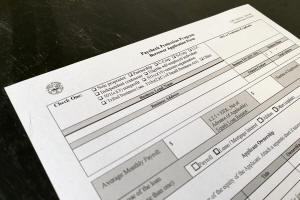Exclusive: U.S. Justice Department probing Kabbage, fintechs over PPP
loan calculations - sources
 Send a link to a friend
Send a link to a friend
 [May 08, 2021]
By Koh Gui Qing and Pete Schroeder [May 08, 2021]
By Koh Gui Qing and Pete Schroeder
WASHINGTON (Reuters) - The U.S. Department
of Justice is investigating whether financial technology companies
including Atlanta-based Kabbage Inc may have erred while distributing
billions of dollars in pandemic aid to struggling small businesses,
three people with knowledge of the matter told Reuters.
The investigation, led by the Justice Department's civil division, is
examining whether Kabbage and other fintech companies miscalculated how
much aid borrowers were entitled to from the Paycheck Protection Program
(PPP) due to confusion over how to account for payroll taxes, the three
people said.
A fourth person with direct knowledge of the matter said a number of
fintechs were being probed over the PPP tax issues but declined to
provide names.

A probe does not necessarily indicate wrongdoing and it was unclear if
the investigation will result in penalties against the companies, two of
the three sources said.
A spokesperson for the Justice Department declined to comment.
Kabbage Inc., which manages Kabbage's PPP loans and also goes by the
brand K Servicing, did not respond to multiple calls and emails seeking
comment. Spokespeople for American Express Co., which in August bought
most of Kabbage's assets other than its loan portfolio, declined to
comment.
The previously unreported probe underscores how the unprecedented $780
billion program, which was launched by the Small Business Administration
(SBA) on April 3, 2020, to mitigate the fallout from COVID-19 shutdowns,
has created legal and reputational risks for some lenders.
Reuters reported in November that a handful of federal agencies
were scrutinizing lenders over a range of PPP issues, including failing
to properly vet borrowers' payroll expense calculations and potentially
discriminatory lending policies.
Under the PPP, big banks, community lenders and
fintechs have dispensed millions of government-backed loans to small
businesses hurt by the pandemic lockdowns. If borrowers spend the money
on payroll and other business expenses, the government repays the lender
on behalf of the borrower.
[to top of second column]
|

A page from the PPP loan application that people have to fill out
for financial support due to the continuing outbreak of the
coronavirus disease (COVID-19) is pictured on a desk in New York
U.S., May 7, 2020. REUTERS/Lucas Jackson/File Photo

While the program has been hailed as a lifeline for small
businesses, its launch was rushed and many of its rules were
initially unclear. One challenge lenders faced in April 2020 was how
to account for federal, state and local taxes when calculating a
company's overall payroll costs, which determined their maximum
allowable loan.
Some lenders over-accounted for taxes, potentially inflating loans,
while others under-accounted for taxes, potentially denying
borrowers aid they were entitled to, the two sources said.
Fintechs have attracted government scrutiny because they processed
loans at high speed using software that in some cases had glitches,
causing errors in applications, one of the sources said. Other
industry sources also said that fintechs' use of automated lending
platforms with few manual checks caused errors to be replicated
across thousands of loans.
SBA data showed fintechs have issued around $26.5 billion worth of
PPP loans. Kabbage made nearly 300,000 PPP loans worth $7 billion
between April 3, 2020, and Aug. 8, 2020, according to its website.
Lenders have said they were under enormous pressure to lend vast
sums of money to millions of businesses quickly, while having to
keep up with ever-changing PPP rules.

A spokeswoman for the SBA declined to comment.
(Additional reporting by Chris Prentice; Editing by Michelle Price
and Sonya Hepinstall)
[© 2021 Thomson Reuters. All rights
reserved.] Copyright 2021 Reuters. All rights reserved. This material may not be published,
broadcast, rewritten or redistributed.
Thompson Reuters is solely responsible for this content. |